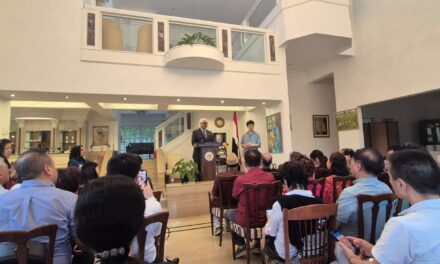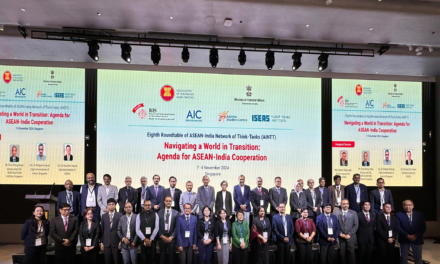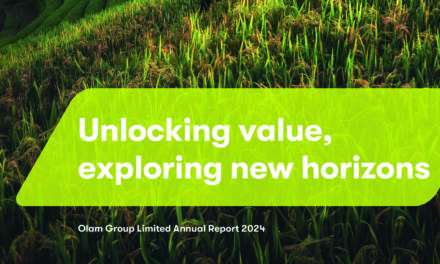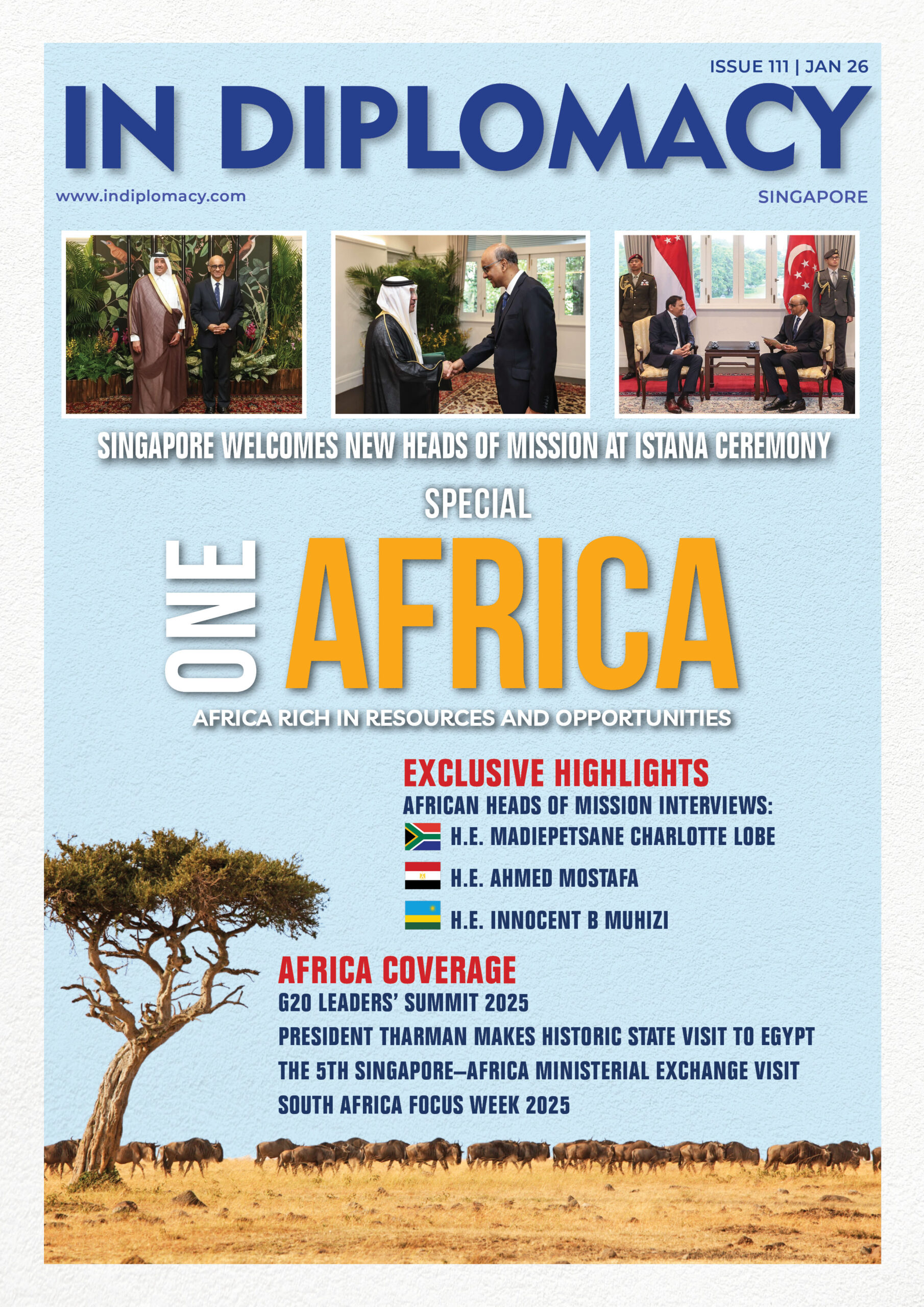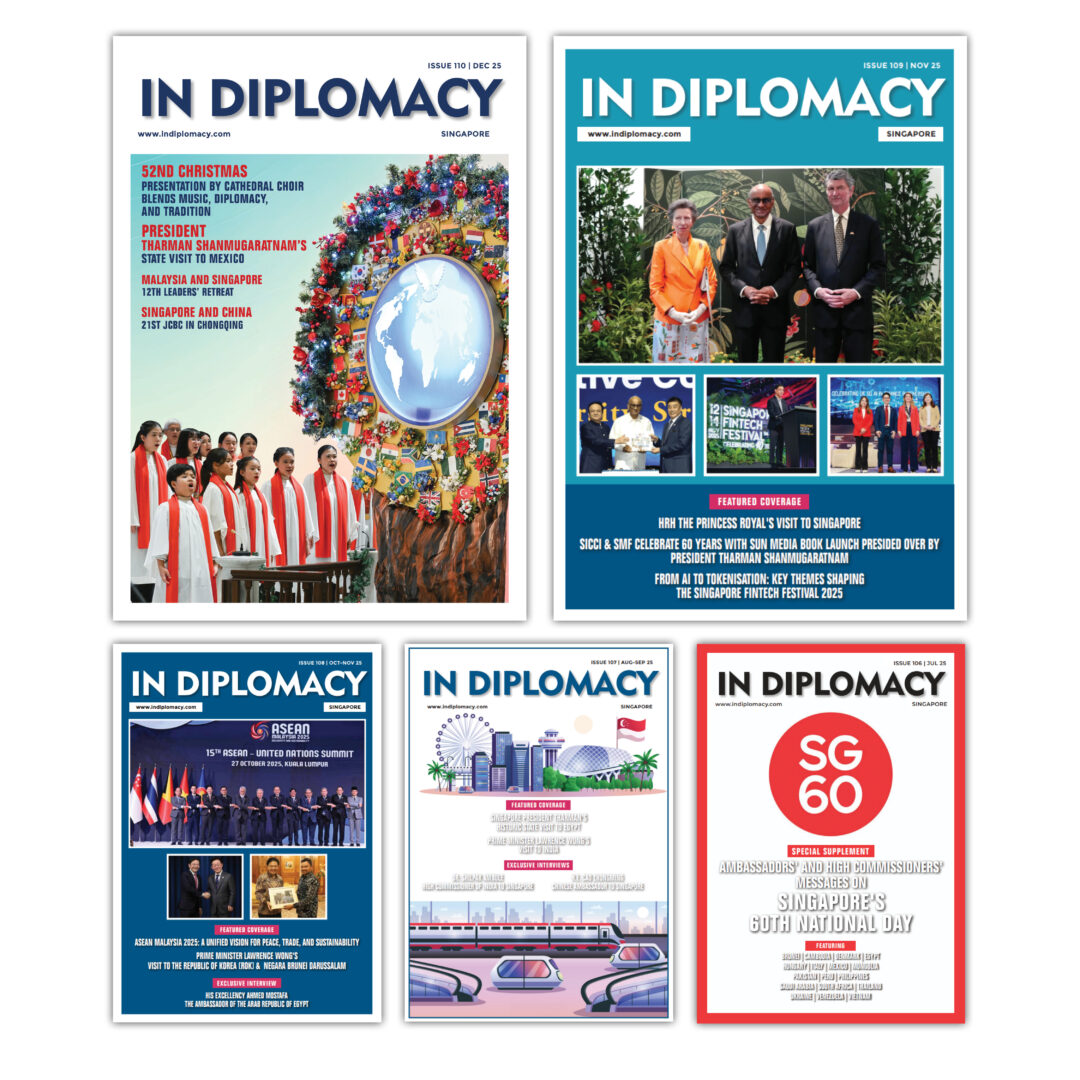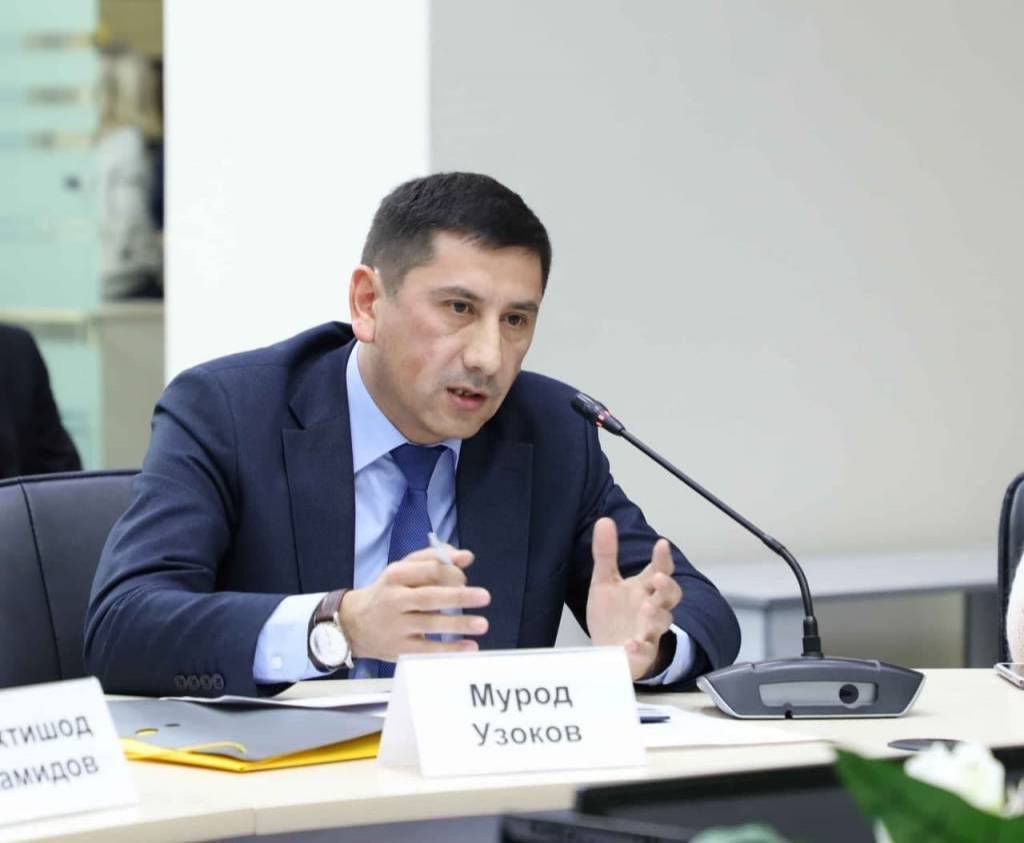
Murad Uzakov, the Head of the Center for Regional Studies of the Institute for Strategic and Interregional Studies (under the office of the President of Uzbekistan) on measures by the UN and Uzbekistan for regional security and stability in Central Asia
IN recent years, the leadership of Uzbekistan, implementing a radically new proactive foreign policy strategy, has paid particular attention to building practical cooperation with international organizations. One of the priority areas is the development and strengthening of multifaceted interaction with the United Nations and its specialized structures.
In particular, today Tashkent is comprehensively expanding its contacts with the United Nations Development Programme (UNDP), the United Nations Office on Drugs and Crime (UNODC), the United Nations Regional Centre for Preventive Diplomacy in Central Asia (UNRCCA), the International Organization for Migration (IOM) and other United Nations agencies. At the same time, in its interaction with them, it attaches particular importance to ensuring security and stability in Central Asia and enhancing its role in the system of international relations.
Among other things, thanks to Uzbekistan’s intensified partnership with the UN, significant progress has been made in establishing in Central Asia a new atmosphere of mutually beneficial cooperation based on mutual trust and good-neighborliness.
As a consequence, the consolidation of the region’s states has significantly strengthened, and they have become more active in proposing and implementing joint regional and international initiatives, programs and projects aimed at ensuring the sustainable development of Central Asia.
Thus, if in the period from 1991 to 2016 about 20 resolutions were adopted at the UN on the initiative of the Central Asian states, 18 resolutions have been adopted since 2016.
The documents reflected such important issues as sustainable development, security, peace and confidence-building in the region, water conservation, climate change and ecology, and prevention of radiation threats. The protection of youth rights and promotion of tolerance took an important place.
UNGA Resolutions Passed
At the same time, Uzbekistan is becoming an active participant in promoting the interests of Central Asia on the UN platform. Thus, in 2018-2022 on the initiative of our country six UNGA resolutions were adopted, including “Strengthening regional international cooperation to ensure peace, stability and sustainable development in the Central Asian region” (June 2018), “Education and religious tolerance” (December 2018), “On declaring the Aral Sea region as a zone of environmental innovation and technology” (May 2021).
In addition, a resolution was adopted in the framework of the UNHRC: “On the implications of the COVID-19 pandemic on the human rights of young people” (October 2021) and at UNESCO – “The Khiva Process” (November 2021) following the International Forum “Central Asia at the Crossroads of World Civilizations” (14-16 September 2021, Khiva).
The Code of Voluntary Commitments of States during the pandemic, developed by the Uzbek side, was circulated as an official document of the UNGA as Uzbekistan’s contribution to the global efforts to combat COVID-19.
Moreover, the Tashkent and Bukhara declarations, which call on the international community to expand multi-confessional and intercultural dialogue and support multilateral cooperation on preventing and countering terrorism, were also recognized as official UN documents.
The totality of all resolutions and other documents initiated by the Central Asian countries of Central Asia within the framework of the UN has created, undoubtedly, a serious foundation in uniting the efforts of the states of the region and the international community in ensuring the political, economic, social and environmental security of Central Asia.
The following factors have played a crucial role in the successful promotion of Uzbekistan’s policy of interaction with the UN:
• First, the intensive diplomacy of the head of Uzbekistan and intensification of political dialogue within the UN.
Thanks to the political will of the President of Uzbekistan Sh. Mirziyoyev, Tashkent has been actively participating in the activities of the UN General Assembly and specialized agencies since 2016. In particular, the head of our country has attended and addressed the 72nd, 75th and 76th sessions of the UNGA, as well as the High-Level Segment of the 46th session of the UN Human Rights Council.
During this period, Sh. Mirziyoyev held 3 meetings with UN Secretary General A. Guterres (in June and September 2017 and April 2019), which allowed to comprehensively discuss and agree on effective measures to develop mutually beneficial cooperation, primarily on issues of regional security and sustainable development of Central Asia.
It should be noted that on 10-11 November 2017 in Samarkand, during the international conference held under the auspices of the UN “Central Asia: One Past and Common Future, Cooperation for Sustainable Development and Mutual Prosperity”, the Central Asian states stated the need for closer and coordinated cooperation of the Central Asian countries in the prevention of new challenges and threats, as well as their interaction with international and regional organizations and partner countries. At the same time, the need to strengthen the central role of the UN in combating challenges and threats to security in the region was emphasized.
In the communiqué adopted at the end of the conference, the delegates appealed to all UN agencies and other international organizations, as well as interested partner states of the Central Asian countries to increase and strengthen cooperation with the states of the region on issues of regional security and sustainable development, in accordance with the priorities, interests, needs and national programs of the Central Asian countries, providing them with the necessary technical, expert, legal, financial and other assistance.
Moreover, within the framework of the Samarkand SCO summit held in September 2022, the President of Uzbekistan S.M. Mirziyoyev met with UN Deputy Secretary General R. DiCarlo and adopted a “Roadmap” on measures for further development of practical interaction.
Also in 2022 and January 2023. UN Deputy Secretary-General A. Mohammed visited Uzbekistan.
Eleven Plans of Practical Measures to develop Uzbekistan’s cooperation with the United Nations and its specialized agencies have been adopted and are being implemented, which undoubtedly also contribute to increasing Central Asia’s resilience to external challenges.
• Second, advancing a constructive agenda to combat terrorism, drug trafficking and other transnational challenges.
Today Uzbekistan is a party to 14 major universal international legal instruments and actively participates in global efforts to counter international terrorism.
Our country was among the first to support the fight against this threat, including the UN Global Counter-Terrorism Strategy (GTS), which has become a comprehensive, collective and universally recognized legal framework for uniting national and international efforts to combat terrorism.
Uzbekistan became an active participant of the Joint Action Plan for Central Asia approved in 2011. The Joint Plan of Action for Central Asia on the implementation of the UNGASS. The implementation of this Plan has made it possible to strengthen regional consensus on common principles and approaches to combating terrorism, create effective mechanisms for cooperation both bilaterally and multilaterally, build counter-terrorism capacity and strengthen the security of the region.
The logical continuation of practical activity in this direction was the holding in 2022 in Tashkent of the International High-Level Conference “Regional cooperation of Central Asian countries within the framework of the Joint Action Plan for the implementation of the UN Global Counter-Terrorism Strategy”, proposed by the President of Uzbekistan Sh.Mirziyoyev at the 75th session of the UNGA.
This conference helped to identify new priorities and areas of cooperation and to give a new impetus to regional cooperation in combating the threats of extremism and terrorism. The Tashkent Declaration and the updated Joint Plan of Action for the implementation of the United Nations Global Counter-Terrorism Strategy in Central Asia will be extremely important for the further sustainable development of the region.
At the same time, the effective realization of the tasks set today requires strengthening the mechanisms of continuous monitoring and coordination of interaction between the countries of Central Asia. In this regard,
in October 2022, Uzbekistan and the UN Counter-Terrorism Office signed a “Road Map”. Currently, within the framework of the Roadmap, work has begun on opening an office of the UN Counter-Terrorism Office in the region.
At the same time, in the context of growing cyberterrorism and to effectively counter the use of digital technologies for terrorist purposes, Uzbekistan has intensified its efforts to implement the UN CTU Program on Cyber Security and New Technologies in Central Asia, adopted in 2020. The UN CTU’s Program on Cyber Security and New Technologies in Central Asia adopted in 2020.
In particular, on 25-26 September this year, for the first time in Tashkent, together
with the UN Regional Centre for Preventive Diplomacy for Central Asia, the organization of a regional seminar on relevant topics is planned. During the event, the parties intend to discuss the creation of a virtual network on cyberterrorism in Central Asia.
Uzbekistan also actively cooperates with the UN and its specialized agencies in countering transnational drug and crime threats.
In particular, there is effective cooperation with the United Nations Office on Drugs and Crime (UNODC) in the implementation of specific practical projects designed to strengthen national and regional capacities. At the initiative of Tashkent
In 2021, the Regional Program for Central Asia for 2022-2025 was developed and signed jointly with UNODC, which laid a solid foundation for work in this direction.
Uzbekistan also intends to work with UNODC to develop a Joint Anti-Drug Action Plan covering the countries of Central and South Asia.
One of the important institutions in countering drug-related crime is the Central Asian Regional Information and Coordination Center for Combating Illicit Trafficking in Narcotic Drugs and Psychotropic Substances, which is successfully functioning in Tashkent. The Central Asian Regional Information and Coordination Center for Combating Illicit Trafficking in Narcotic Drugs, Psychotropic Substances and their Precursors (CARICC), which has significantly increased the level of coordination and cooperation in this area.
Efforts in this regard were continued by the agreement reached in 2021 between the President of Uzbekistan
The agreement between the President of Uzbekistan and the Executive Director of UNODC in 2021, and the opening of the UNODC in May 2023. The UNODC Information Center will be opened in Tashkent in May 2023. Its main objectives are to help strengthen the state borders of the Central Asian countries bordering Afghanistan and to counter illicit trafficking in narcotics, firearms, human trafficking and illicit financial flows.
In addition, a mechanism has now been established for the UN Counter-Terrorism Office and the UN Office on Drugs and Crime to conduct step-by-step training courses on combating terrorism, violent extremism, organized crime and the financing of terrorism for the country’s law enforcement officers.
• Thirdly, increased cooperation on establishing peace and stability in Afghanistan.
Uzbekistan has always been in favor of resolving the situation in Afghanistan exclusively through peaceful political and diplomatic means.
At the same time, Uzbekistan’s pragmatic and constructive policy on Afghanistan has acquired a holistic, comprehensive and dynamic character with the election of Shavkat Mirziyoyev as President of the country. Thus, Tashkent has intensified its efforts to resolve the Afghan issue and continues to advocate coordination of efforts of all countries to stabilize the situation in Afghanistan within the framework of the United Nations.
It is important to note that in all the speeches of the Head of Uzbekistan at the UN platforms, the key place is given to the settlement of the Afghan problem, specific initiatives are put forward to assist in achieving stability in this country. They also demonstrate Tashkent’s commitment to preserving the central role of the United Nations in resolving the Afghan issue and interest in uniting the efforts of the entire international community to establish lasting peace in this country.
In particular, Mirziyoyev repeatedly stated on the UNGA platform that “the issues of establishing peace and stability in Afghanistan should remain in the center of attention of the UN” and “it is necessary to strengthen the role of the UN in resolving the situation in Afghanistan, and its voice should sound louder than ever”.
Also, Uzbekistan’s important contribution in this direction was the holding of the 2018 Tashkent High-Level International Conference on Afghanistan “Peace Process, Security Cooperation and Regional Cooperation” under the auspices of the United Nations, which marked a new stage in mobilizing the efforts of the international community to resolve the Afghan problem.
In turn, the High-Level International Conference “Central and South Asia: Regional Connectivity. Challenges and Opportunities” consolidated the efforts initiated by our country.
A characteristic feature of Uzbekistan’s Afghan policy is that Tashkent views Afghanistan not only in terms of security threats, but also as a country that can act as a bridge between Central and South Asia and strengthen trade and economic ties between the two regions.
Moreover, Tashkent continues to urge the UN and the international community not to reduce the volume of international assistance and attention in order to prevent Afghanistan from becoming a source of permanent threats again.
That is why today Uzbekistan is taking active steps to consolidate the efforts of the entire international community in establishing Afghanistan as a peaceful, stable and prosperous State free of terrorism, war and drugs. In particular, the Uzbek city of Termez, bordering Afghanistan, is carrying out an important mediation mission, facilitating the delivery of humanitarian aid sent by foreign countries to that country.
Thus, the international logistics hub in Termez “Cargo Center”, opened in 2021 on the initiative of President Sh. Mirziyoyev under the auspices of the UN, currently serves as the main point for sending humanitarian aid from the UN to Afghanistan.
In two years, the World Food Program, UNICEF and the Office of the United Nations High Commissioner for Humanitarian Affairs have delivered more than 1,000 tons of humanitarian aid to Afghanistan through it.
In addition, today Uzbekistan is interested in developing a unified international approach to the Afghan question, which would make it possible to bring together the positions of various States on Afghanistan,
and also contribute to the country’s early recovery from the current difficult socio-economic situation.
The initiative of President Sh. Mirziyoyev is aimed at this purpose on the formation of a high-level International Negotiating Group under the auspices and with the support of the United Nations. Its implementation will make it possible to strengthen international consensus on key issues of settling the situation in Afghanistan and keep the Afghan issue in the center of attention of the world community.
That, in turn, will also mobilize funds from the international community for infrastructure and socio-economic projects that will lay the foundation for a long-term and lasting peace in Afghanistan.
• Fourth, progressive engagement with the UN on youth policy support.
In the context of population growth in Central Asian countries, where young people make up a significant demographic group – about 30%, Uzbekistan, realizing the growing demand from them for socialization, education and employment, is actively building cooperation with the United Nations in this area. At the same time, an effective youth policy is an essential condition for ensuring stability and sustainable development in Central Asia.
That is why President Sh. Mirziyoyev emphasizes positioning young people not as risks, but as agents of positive change and a source of new opportunities for sustainable development of CA countries and the region as a whole.
In this context, much work has been done in recent years. In particular, in August 2020, the Samarkand International Forum on Youth Rights was successfully held under the auspices of the UN, which resulted in the adoption of the Samarkand Resolution “Youth 2020: Global Solidarity, Sustainable Development and Human Rights”. The document defines the important role that youth can play in promoting peace and security, sustainable development and human rights, and the importance of active, meaningful and inclusive youth participation in decision-making, especially in Central Asian countries.
Also in December 2022, a Global Forum on “Human Rights Education” was organized in Samarkand together with international partners: the Office of the United Nations High Commissioner for Human Rights and its Regional Office, UNICEF, UNHCR, UNODC and others, a Global Forum on “Human Rights Education” was organized. It resulted in the adoption of the Samarkand Plan of Action for 2023-2025 on the development of human rights education, which defines the tasks, proposals and recommendations facing the international community, national governments, educational and scientific institutions and civil society institutions for the effective implementation of human rights education and training. It is important to note that the initiative to hold this forum was put forward by the President of Uzbekistan at the 76th session of the United Nations General Assembly and the 46th session of the United Nations Human Rights Council.
The resolution “Education and Religious Tolerance” adopted by the UNGA on the initiative of the President of Uzbekistan Mr. Sh. Mirziyoyev is a great achievement. The document is designed to ensure universal access to education, eliminate illiteracy, and promote tolerance, mutual respect and mutual understanding in order to strengthen security and peace.
and mutual understanding for the sake of strengthening security and peace.
In addition, Tashkent is actively pursuing an initiative to adopt the UN International Convention on the Rights of Young People, which should enshrine the need for the active participation of young people in democratic processes, the right to comprehensive family support and protection, the right to public support and care, legal personality and equality before the law, to participate in decision-making at the national and international levels, and to protection from violence and exploitation.
Undoubtedly, the measures taken by Uzbekistan to safeguard the interests of young people make it possible to overcome challenges and open up opportunities to harness the potential of young people, which in turn increases the resilience and strengthens the security of Central Asia.
• Fifth, consolidation of efforts to address regional climate change challenges.
At present, the CA region is increasingly experiencing the consequences of global climate change. At the same time, climate change contributes to the aggravation of water scarcity, land degradation and desertification, increasing number of natural disasters, which becomes a critical problem for the region and poses a serious threat to sustainable development.
and poses a serious threat to sustainable development.
According to UN data, Central Asia is warming faster than other parts of the world. While the average global temperature has increased by 1.1°C since 1900, in our region the average annual temperature has increased by 1.6°C, i.e. from 13.2°C to 14.8°C on average. At the same time, according to forecasts, the air temperature may increase by another 1.5°-3°C until 2050.
In this regard, as well as realizing the importance of the problem and the need to take effective measures to mitigate and adapt to the consequences of climate change, the climate agenda has become a priority for Uzbekistan.
In this regard, and realizing the importance of the problem and the need to take effective measures to mitigate and adapt to the consequences of climate change, the climate agenda is becoming a priority for Uzbekistan. President of Uzbekistan Sh. Mirziyoyev has repeatedly noted that “Uzbekistan pays serious attention to the issues of combating climate change, protecting the environment and biodiversity. This is our human duty before the present and future generations”.
and future generations”.
Today, we can confidently say that these words are confirmed by practical actions. Thus, thanks to the efforts of Tashkent, in 2018, the Multipartner Fund for Human Security for the Aral Sea Region was established under the auspices of the UN, which has become a reliable platform for practical assistance from the international community to the population of the region living in an area with a difficult environmental situation. To date, the Fund has attracted 134.5 million dollars of financial resources from donor countries.
The UN also supported the International Innovation Center of Priaralie, established in 2018. International Innovation Center of Priaralie. The objectives of the Center are to develop research and practice, improve the ecosystem and sustainable livelihoods, and introduce best practices in research and innovation in the saline lands of the dried Aral Sea bed.
An important achievement was that in 2021, during the 75th session of the UNGA, a special resolution proposed by the President of Uzbekistan Sh. Mirziyoyev on declaring the Aral Sea region a zone of environmental innovations and technologies, co-sponsored by about 60 states, was unanimously adopted. In it, the UNGA declares support for regional activities and initiatives aimed at improving the environmental, social, economic and demographic situation in the Aral Sea region.
At the same time, in 2023, the Central Asian University of Environmental Studies and Climate Change was opened in Tashkent, which will be engaged in training, retraining and advanced training of specialists, scientists, researchers, managers and entrepreneurs capable of solving important environmental, socio-economic and scientific-technical problems of Uzbekistan.
and entrepreneurs capable of solving important environmental, socio-economic and scientific-technical problems of Uzbekistan and Central Asia.
Uzbekistan actively participates on a permanent basis in the annual meetings of the UN Framework Convention on Climate Change.
in the annual meetings of the UN Framework Convention on Climate Change. During the 27th meeting, held in 2022, the Uzbek delegation advocated for consolidation of efforts in achieving carbon neutrality, promoting renewable energy, climate change adaptation projects, combating desertification and land degradation, introducing water-saving technologies and other climate actions in Central Asia.
Another important aspect was that the UN supported Uzbekistan’s intention to hold the first “Samarkand International Solidarity Forum for Shared Security and Prosperity” in the spring of 2024 on climate change, which will also include discussion of opportunities for international cooperation to reduce risks and threats in the Central Asian region and attract climate finance.
The UN has supported Uzbekistan’s intention to hold the first “Samarkand International Forum of Solidarity for Shared Security and Prosperity” on climate change in spring 2024, which will also discuss opportunities for international cooperation to reduce risks and threats in the Central Asian region and attract climate finance.
Given the growing challenges and emerging new threats to the Central Asian region, Uzbekistan, led by President Mirziyoyev, will continue to strengthen interaction with the United Nations in ensuring regional security and sustainable development of Central Asia. This will also be facilitated by the given dynamic pace of regional processes and cooperation, consolidation of efforts by the countries in solving the problems of Central Asia.
At the same time, the forthcoming participation of the head of Uzbekistan in the 78th UNGA will contribute to the formation of a broad and effective agenda for further utilization of the potential of interaction at the global level in strengthening security and stability in the region.
In general, it can be stated that Uzbekistan’s proactive diplomacy within the UN to promote the interests of Central Asia opens up broad opportunities and prospects for practical interaction with the international community. At the same time, the openness of Uzbekistan and Central Asia to the development of ties at the global level will convert challenges into opportunities, which in turn will contribute to the formation of a new model of regional cooperation under changing conditions.
Murad Uzakov is the Head of the Center for Regional Studies at the Institute for Strategic and Interregional Studies under the President of the Republic of Uzbekistan. Above article contributed through the Embassy of the Republic of Uzbekistan in Singapore

